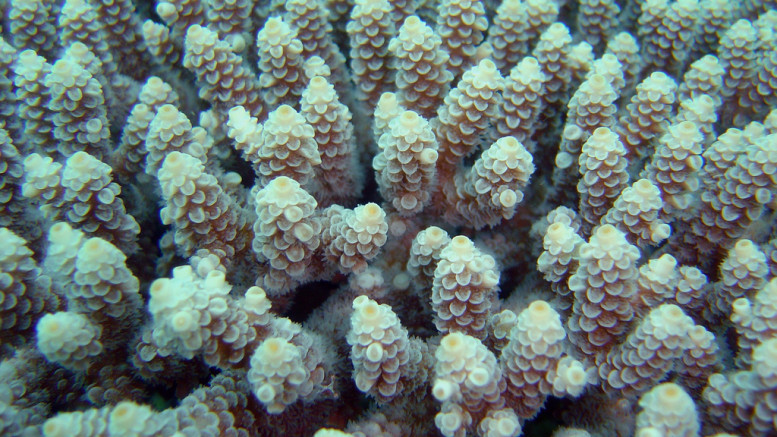For the second year in a row, climate change-induced coral reef bleaching is putting the survival of the world’s largest reef in danger. According to The Guardian, an unprecedented wave of widespread bleaching is causing massive damage to the Great Barrier Reef, whose corals never had any time to recover from the extreme weather events that occurred in 2016. Queensland authorities confirmed that an underwater heatwave killed almost two-thirds of the corals in the surveyed areas between Cairns and Townsville.
The Great Barrier Reef is known for the vibrant colors of its corals. These marine invertebrates, however, get their vivid shades from the symbiotic algae that live inside them. These tiny organisms help the corals by sharing resources, including supplying them with nutrients they produce through photosynthesis. However, corals’ health is extremely fragile, and even a small change in water temperature can stress them out. Global warming is increasing the average sea water temperature and, as a response to stress, corals expel the microscopic algae from their tissues and turn completely white. Although the coral is not killed outright by this phenomenon (which is known as “coral bleaching”), it becomes much more vulnerable to stress, and its mortality rate increases significantly.
When the water temperature drops, corals may reabsorb the algae, and some areas of the Great Barrier Reef will eventually regain their color. However, the widespread coral reef bleaching persisted for two consecutive summers, leaving no time for the marine invertebrates to recover adequately. In 2016, more than 90 percent of the area’s reefs have been ravaged by a massive bleaching that killed up to 50 percent of the corals in some regions. Corals are central to the fragile marine ecosystem of the Great Barrier Reef, and their widespread death is taking a heavy toll on the biodiversity-rich environment.
Photos taken by marine biologist Brett Monroe Garner show that the bleaching is spreading at an alarming rate. Garner, who is documenting the event with the environmental organization Greenpeace, explained that the reef between Cairns and Port Douglas was “full of color and life” just one month ago. In his latest photos, however, almost 100 percent of the corals appear to be white. During his interview with the ABC, Marine Park Authority Director of Reef Recovery David Wachenfeld stated that he’s mostly concerned with the effects of global warming on the reef’s health. Extreme weather events and climate change may, in fact, represent “a major threat to the future of the reef.”
Article by Claudio Butticè
